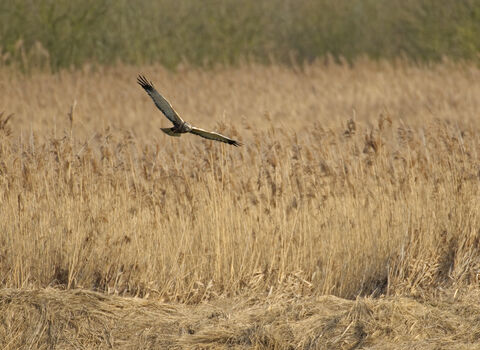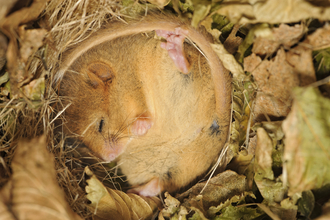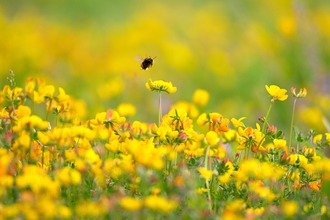What is Biodiversity Net Gain?
Essex Wildlife Trust is a provider of Biodiversity Net Gain (BNG) units in Essex. Whether you are a developer who needs BNG units, looking to meet your requirements on-site, or exploring opportunities to develop your own BNG services – we are here to help.
We offer a complete, end-to-end service: from initial biodiversity surveys through to the purchase as gold standard BNG units. By working with us, you can meet your BNG obligations with confidence while directly supporting the recovery of Essex’s wildlife and landscapes.
By partnering with us, your business contributes to thriving habitats that benefit wildlife, people, and future generations.

Chris Gomersall/2020 VISION
Going above and beyond
The purchase of units from Essex Wildlife Trust will go directly to creating places of wonder where nature will flourish and people will thrive.”
– Dr Jeremy Dagley MCIEEM
Why BNG matters
Biodiversity Net Gain is more than just a planning requirement. Done properly, it delivers lasting benefits for nature, communities, and the economy. At Essex Wildlife Trust, we go beyond the minimum 10% gain, ensuring a measurable, positive impact on the sites we manage.
Our sites are in perpetuity, giving you the peace of mind that the units you purchase as part of your planning obligations, will be managed throughout the agreement term and for future generations.
BNG with us also supports local communities:
> Creating accessible green spaces where people can connect with nature.
> Supporting education, wellbeing, and climate resilience.
> Enhancing Essex’s landscapes for wildlife and people alike.
Our Specialist Team
Our dedicated team of ecologists and conservation professionals will guide you through every step of the BNG process. We work as an extension of your team, providing expert advice and practical solutions to help you achieve real biodiversity outcomes.
Safe Hands
Founded in 1959, Essex Wildlife Trust has decades of experience protecting wildlife through landscape-scale conservation. By purchasing your BNG units with us, you’ll be investing in more than compliance:
Long-term security: Your BNG units are safeguarded for at least 30 years and beyond, as we manage sites in perpetuity.
Supporting wider conservation: Every purchase helps fund our wider charitable work, supporting Essex’s unique wildlife and habitats.
A trusted local partner: You’ll be contributing to a trusted, local organisation that has been at the heart of Essex conservation for generations.
FAQs
How is BNG calculated?
A BNG baseline survey must be carried out by a qualified ecologist before any development starts. A report is produced, and this information is then run through the statutory biodiversity metric to calculate the units of biodiversity lost, and then how much biodiversity needs to be gained. This output is then incorporated into the BNG report.
What counts towards BNG?
We would encourage delivering as much biodiversity gain as possible on site. However, developers can deliver on site, off site or a combination of the two.
- On-site habitat creation or enhancement: within the context of a development, this is likely to be improved or new hedgerows, woodland, individual and areas of scrub. Grassland and open spaces can be used, however, these must be kept free of excessive public use and dogs being walked off leads.
- Off-site habitat creation or enhancement: if on-site enhancements or new areas are not possible, developers can deliver gains elsewhere from a habitat bank registered with Natural England.
How many BNG units do I need?
Every site is different, so you will only know how many units you need once a baseline survey, report and metric has been carried out by a qualified ecologist.
What developments are exempt from BNG?
Most developments will require biodiversity net gain. However, there are a few exceptions:
- Self-build / custom-build with no more than nine dwellings on site, with a site size of under half a hectare. The self-build dwellings must meet the definition of the self-build and custom housebuilding act.
- Existing planning applications, which were submitted before the start of the mandatory BNG regime (12 February 2024 for “major developments”).
- Alterations to domestic homes, such as a small extension of loft conversion.
- Developments below the de minimis threshold of less than 25m2 or under 5m of hedgerow, these changes to site must not impact a priority habitat.
- Nationally Significant Infrastructure Projects (NSIPs) in England are not yet required to deliver a mandatory 10% Biodiversity Net Gain (BNG). However, the UK government has announced plans to introduce this requirement for NSIPs starting from May 2026. Until the new regulations come into effect, NSIPs are not obligated to meet the 10% BNG target. However, the majority of NSIPS will deliver BNG gains on a voluntary basis.
Find out more
Contact us using the form below and one of our BNG specialists will be in touch to discuss how we can help.






